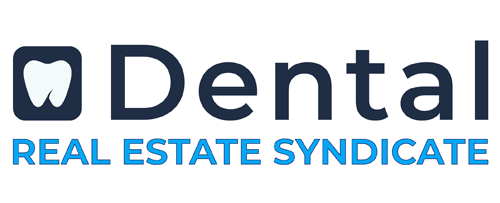As a dentist, retirement planning is crucial to ensure a comfortable and secure future. With the unique financial challenges and opportunities dental professionals face, dentist retirement planning requires a tailored approach. Whether you’re just starting your career or approaching retirement, having a solid plan in place is key to achieving financial freedom.
In this article, we’ll explore the importance of dentist retirement planning, how to create an effective strategy, and the steps you should take to secure your future.
Why is Dentist Retirement Planning Important?
Many dentists face challenges when it comes to dentist retirement planning. Unlike traditional employees, dentists often work as independent contractors or business owners. This means they need to take charge of their own retirement savings. Planning ahead will help you maintain your lifestyle after you stop practicing.
Key Factors in Dentist Retirement Planning:
- Income Variability: Dentists often have fluctuating incomes depending on their practice’s success. Building a retirement plan that accounts for both the high and low periods in earnings is essential.
- Longer Lifespan: On average, dental professionals tend to live longer than the general population, making it necessary to save more for a longer retirement.
- Business Sale or Succession: For many dentists, selling their practice or passing it on is a key part of their retirement plan. Having a strategy for business succession is essential to securing your financial future.
Steps to Create an Effective Dentist Retirement Plan
Creating a robust retirement plan involves more than just saving money. Here’s how you can approach dentist retirement planning:
1. Start Early and Save Consistently
The earlier you start saving for retirement, the better. Compounding interest allows your savings to grow over time. The more you save now, the more financial freedom you’ll have later.
Consider contributing to retirement accounts like:
- 401(k) or 403(b): These employer-sponsored plans offer tax advantages and, in some cases, employer matching.
- IRA (Individual Retirement Account): Both traditional and Roth IRAs offer different tax advantages, helping you save for retirement efficiently.
2. Work with a Financial Planner
A dentist retirement planner can help you tailor your retirement plan to your specific needs. Financial planners familiar with the unique financial situation of dentists can advise you on the best strategies to maximize your savings, reduce taxes, and grow your assets.
Some areas a financial planner can help with include:
- Selecting the right retirement accounts.
- Investment strategies for long-term growth.
- Planning for healthcare costs in retirement.
3. Consider Practice Ownership Transition
If you own your dental practice, selling it or transitioning the business is likely to be a significant part of your retirement strategy. Speak to a dental financial advisor or business consultant about the most tax-efficient way to sell your practice. This could include finding a buyer, creating a succession plan, or even selling to a dental service organization (DSO).
Having a clear business exit plan will ensure that your practice sale aligns with your financial goals.
4. Diversify Your Investments
Investing in a variety of assets will help reduce risk and grow your retirement fund. Don’t rely solely on your practice for retirement. Consider diversifying into:
- Stocks and Bonds: A balanced portfolio of stocks and bonds can provide growth while reducing risk.
- Real Estate: Many dentists invest in real estate properties to generate passive income, which can supplement retirement savings.
- Other Investment Vehicles: Mutual funds, ETFs, and other investment options can offer additional avenues for long-term growth.
5. Plan for Healthcare Costs
As you approach retirement, healthcare costs can become a significant concern. As a dentist, you may already be familiar with insurance options, but it’s important to plan for future medical expenses.
Consider options like:
- Health Savings Accounts (HSAs): These accounts allow you to save money tax-free for medical expenses.
- Long-Term Care Insurance: This helps cover costs if you need assistance with daily living activities in the future.
Tax Strategies for Dentist Retirement Planning
One of the biggest challenges in dentist retirement planning is understanding how taxes will impact your savings. Fortunately, there are several strategies you can use to minimize tax liabilities and maximize your retirement savings:
1. Tax-Advantaged Retirement Accounts
Contributing to retirement accounts like a 401(k), IRA, or Roth IRA can provide significant tax advantages. These accounts allow you to grow your savings tax-deferred (traditional) or tax-free (Roth), giving you more flexibility when you retire.
2. Tax-Efficient Investing
As you build your retirement savings, make sure you invest in tax-efficient vehicles. This can include tax-deferred accounts, municipal bonds (which are typically tax-free), or tax-efficient mutual funds and ETFs.
3. Consider Your Business Structure
The structure of your dental practice may affect how you pay taxes on your retirement savings. Speak to a tax professional about the best structure for your practice and how it can impact your retirement planning.
How Dental Real Estate Syndicate Can Help
At Dental Real Estate Syndicate, we understand the challenges of dentist retirement planning. Our team works with experienced financial advisors to help you develop a retirement plan that fits your goals and ensures financial security.
Whether you’re looking to invest in dental real estate, sell your practice, or grow your retirement savings, we provide guidance tailored to your unique needs. Visit our About Us page to learn more.
Feel free to connect with us on LinkedIn or visit our LinkedIn company page to learn more.

